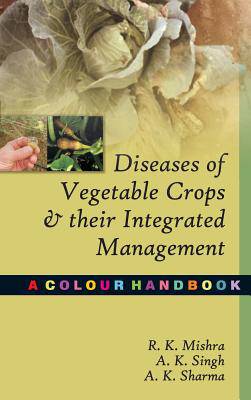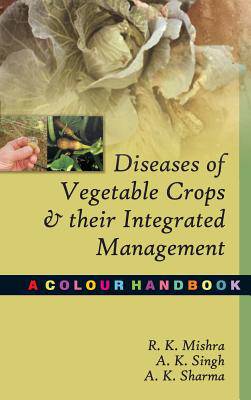
- Afhalen na 1 uur in een winkel met voorraad
- Gratis thuislevering in België vanaf € 30
- Ruim aanbod met 7 miljoen producten
- Afhalen na 1 uur in een winkel met voorraad
- Gratis thuislevering in België vanaf € 30
- Ruim aanbod met 7 miljoen producten
Zoeken
€ 118,95
+ 237 punten
Omschrijving
Vegetables are important source of dietary fibers, minerals, antioxidants and vitamins. Shifting from a non-vegetarian diet to vegetarian, global recognition of the importance of vegetables for human health and their medicinal and nutritional value have contributed to a steady upward trend in vegetable production system. China is ranked first in the world and currently produces around 237 million tons of vegetable. The total vegetable production of India during the year 2009-10 was approximately 90 million tons. Pesticides are valuable tools in sustainable vegetable production, but unfortunately they are often being used irresponsibly, causing hazards to producers, consumers and the environment. In addition, they can exacerbate pests and diseases problems by inducing resistance and suppressing the natural enemies which exert natural biological control. This book aims to promoting an integration of appropriate chemical, cultural, physical, genetic and biological technologies into Integrated Pest Management (IPM) strategies for vegetable crop protection.
Specificaties
Betrokkenen
- Auteur(s):
- Uitgeverij:
Inhoud
- Aantal bladzijden:
- 132
- Taal:
- Engels
Eigenschappen
- Productcode (EAN):
- 9789381450499
- Verschijningsdatum:
- 15/01/2013
- Uitvoering:
- Hardcover
- Formaat:
- Genaaid
- Afmetingen:
- 152 mm x 229 mm
- Gewicht:
- 349 g

Alleen bij Standaard Boekhandel
+ 237 punten op je klantenkaart van Standaard Boekhandel
Beoordelingen
We publiceren alleen reviews die voldoen aan de voorwaarden voor reviews. Bekijk onze voorwaarden voor reviews.











